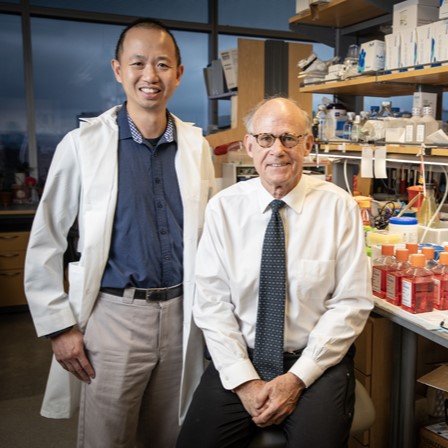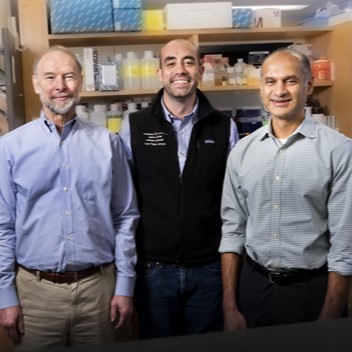Patient Search
 |
 |
|
KaCrole Higgins was diagnosed with breast cancer in 2020. “In May 2020, I found a lump in my breast. I cried. By June, it was diagnosed as breast cancer, triple positive, stage 1A. While getting this cancer diagnosis was devastating, it also became an opportunity. Suddenly, the cancer gave me clarity. It gave me clarity about what was important, what was good in my life, what was toxic in my life, and what I needed to do.” Click below to read more of KaCrole’s story |
If Landon Ryan had been diagnosed with bilateral retinoblastoma 10, 20 or 30 years ago, she might not be here today with nearly perfect vision.Thanks to recent improvements in the treatment for this rare form of cancer that almost exclusively affects children under the age of 5, the diagnosis had the power to change Landon’s life when she was 11 months old, but not to take it — or her eyesight. Click below to learn more about Landon and her story. https://momentum.vicc.org/2022/04/brighter-outlook/ |
New reference tool supports replication of DNA biobank studies

Study explores new urinary tract infection treatment
Vanderbilt's Neil Osheroff, PhD, is part of an international research collaboration resulting in what is on track to be the first new antibiotic treatment for uncomplicated urinary tract infections in more than 20 years.

Clamping Down the Metabolic Pipeline to B Cells
New research shows the nutritive needs of B cells are more flexible than previously thought, which could enable researchers to steer antibody production in the lymph nodes and spleen to better combat autoimmunity. Patients with high-risk diseases of the immune system, particularly systemic lupus erythematosus, could stand to benefit from the research findings. The study led by Mark Boothby, MD, and published in the Journal of Immunology, provides details regarding how murine B cells use different sugars as they mature into antibody-producing cells

Colorectal cancer 'cartography' reveals an avenue to improved immunotherapy
Vanderbilt University Medical Center researchers have discovered why most colorectal tumors escape detection and destruction by the body's immune system.

VUMC researchers upend dogma about vasopressin production
Vanderbilt investigators have discovered that vasopressin, which has long been thought to be produced only in the brain, is also produced in the kidney.

Please s
VUMC to help engage more study participants in research decisions
Human research will be more equitable, inclusive and stronger if the people who are participants in studies also help plan and guide the direction of those studies.



